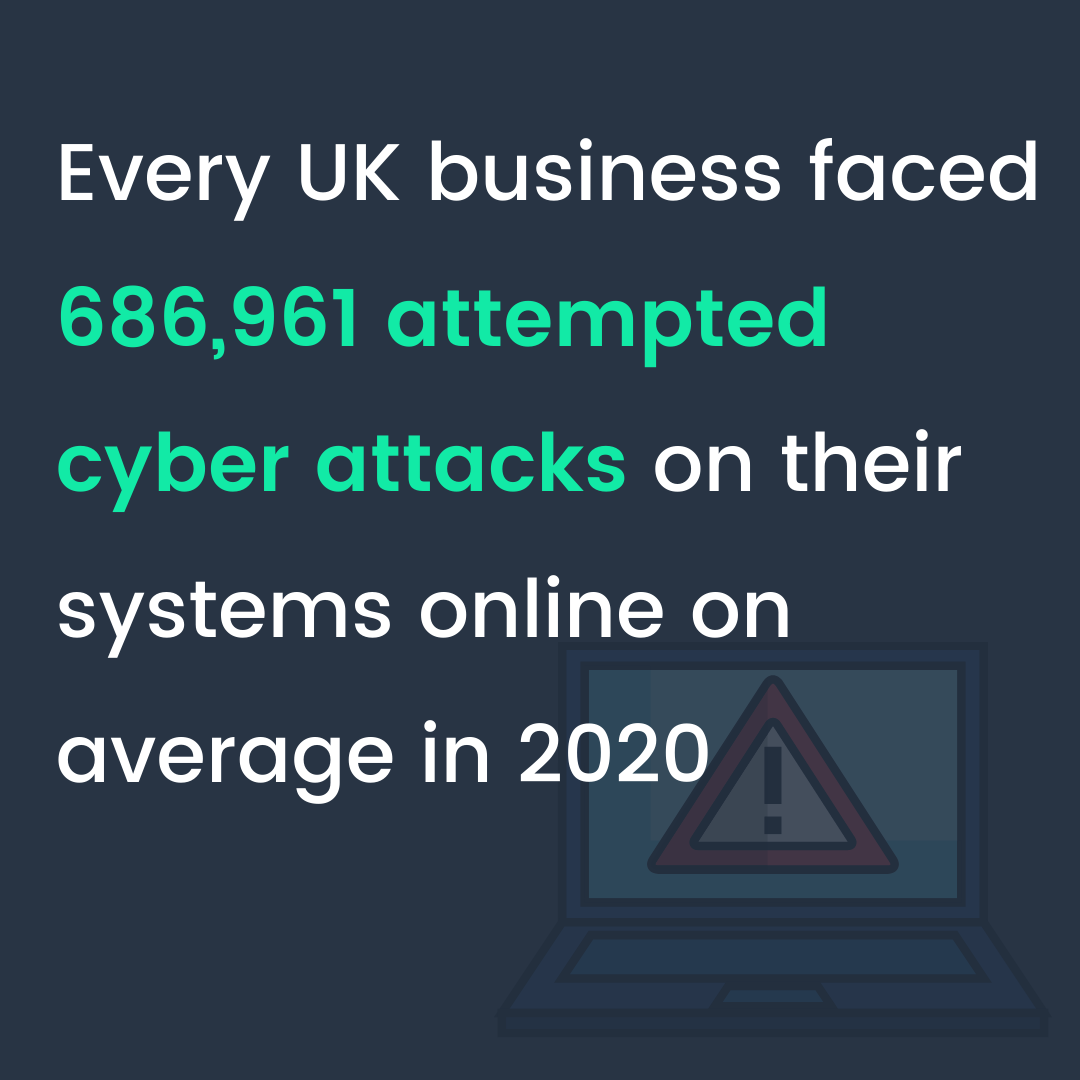How to make your remote working more secure for your business?
Many businesses in the last 18 months have switched to remote working and some may have fully embraced remote working however, many found it difficult to implement.
The challenge for many businesses was setting up a secure environment that gave their employees the ability to work from home whilst ensuring the company’s data and systems were protected.
Businesses faced a 20% rise in Cyber Security threats in 2020, on average every UK business faced 686,961 attempts on their systems online in 2020. This equates to an attempted attack every 46 seconds, leading to being the busiest year on record for cyber attacks.
With a large portion of businesses switching to hybrid working or remote working for the foreseeable , it might be best to make your company’s working environment more secure to decrease your chances of any breaches.

Devices and Hardware
Firstly, your employees will need to have the right devices and hardware to work from home. It may be best to supply your staff with the equipment that they need so you know there aren’t any existing viruses on the device. Plus you will be able to install any antivirus software.
Remote connectivity
You will need to ensure that your employees are able to access company systems and intranets remotely, usually by a virtual private network (VPN).
Something to remember is that if you’re going to have more remote workers compared to normal, you may need additional licenses and bandwidth for example.
Password policy
Every company should have a strong password policy. It’s best to encourage your employees to set strong passwords and different passwords for different platforms.
For example, if an employee’s password is breached on your banking system and then they have a different password for a software that can access your customer’s personal details, it is minimising the number of breaches within your company.
Cyber Attack Awareness
For every 10 attacks, 9 of them happen by email. With that statistic in mind, it’s best to alert your employees about the possible threats and have a protocol in place.
Making your employees aware of phishing emails can decrease the chances of someone clicking on an external link, opening an attachment or logging into a website that looks legitimate.
More than half of all phishing emails in 2020 and 2021 were related to the coronavirus pandemic and they can even mask employees’ email addresses, making it look like it came from a colleague.
For the protocol side of things, your employees will need to know what to do if they did click on a link in a phishing email. The quicker you react to it, the minimal amount of damage that can happen. For example, who is the best person to report the breach to and what they need to do to prevent it from getting worse; such as reporting it IT support.
Removable media
A USB drive can easily get lost and an easy method of malware to access your network. If you’re going to use a USB drive, ensure it’s not a personal USB as it may contain malware from an employee’s personal computer which can be transferred on your company’s network. Any use of a USB should be scanned beforehand and any data should be encrypted.
If your company does use a USB drive, it may be a good idea to look for an alternative means of transferring and storing data (cloud storage, collaboration tools or bespoke storage solutions)
If you’re looking to upgrade your devices, hardware or looking to create bespoke or new software for your company, did you know that finance is an option?
Speak to a member of our team to find out more and to discuss your requirements. Call us on 01270 443510 or complete our enquiry form and we’ll be in touch with you as soon as possible.
